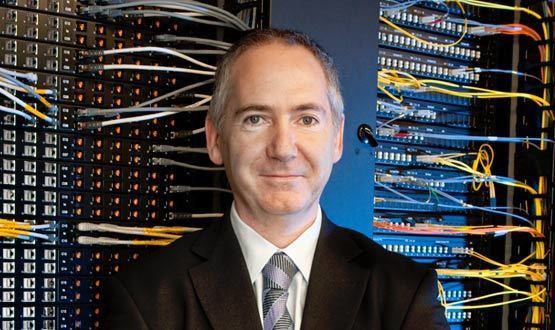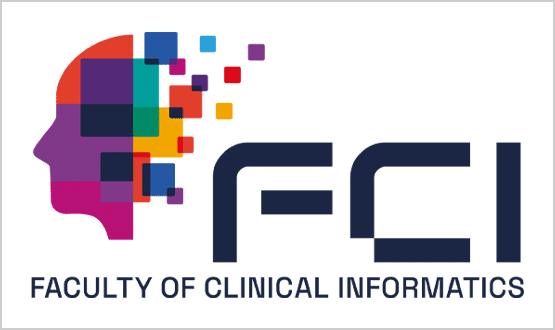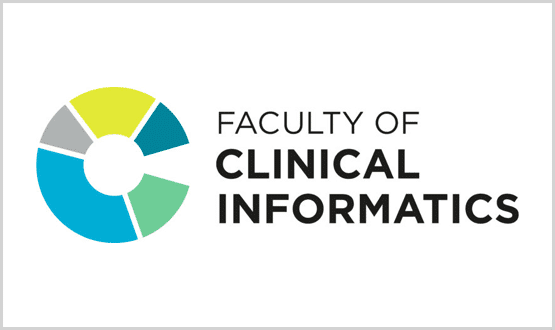Health CIO profile: James Thomas
- 16 June 2014

While James Thomas keeps a close eye on the health IT landscape in London, it was mapping of a different variety that initially kept him occupied at university – thanks in large part to his mother.
“I didn’t have a very particular or clear idea of what I was going to do but, luckily, my mother knew what I was going to do – so I started training as a land surveyor and cartographer.
“Since this is England, it occurred to me that standing outside in the pouring rain might not be a good idea, so I decided to focus on cartography.”
Finding a way to give back
At that point, digital cartography was in an “embryonic” state, but his work in the field convinced him of the merits of a tech-savvy approach. “It became very clear to me that in the industry, there was not going to be a non-digital future.”
Thomas started working at BP Exploration, undertaking satellite image processing and oilfield mapping, before moving into water utilities, where he worked for French transnational company Veolia on geographic information systems and real-time telemetry.
He then joined multinational technology giant Oracle as a principal consultant, where he worked for seven years with a range of clients from the Ministry of Defence to Barclays.
His move into the NHS came after one of his children had early health problems, leading him to take a break from Oracle while his child started pre-school. The break gave him the chance to reconsider his work priorities and discuss with his family what he should do next.
“We decided that it had to be a job where I got home at the end of every day, and where I was doing something that was giving back, rather than focussing purely on commercial output.”
Stabilising UCL’s IT foundations
After a couple of years at different NHS trusts, the ICT director’s position became available at University College London Hospitals and Thomas jumped into the role.
His initial focus was on stabilising the trust’s commercial contracts after its suppliers had been destabilised by the National Programme for IT, while also building greater resilience into its IT systems.
“There were huge amounts of single points of failure across systems, networks and the workforce… and that’s a big problem when you’re supplying six or seven acute hospitals.”
After that, his efforts shifted towards developing innovative approaches to capturing and presenting clinical information, starting with the establishment of an ICT strategy board and developing a five-year vision for the trust.
The success of the first strategy – Thomas estimates that the trust delivered on 85% of what it proposed – has led to the development of a second plan running until 2017. In drawing this up, staff across the trust were encouraged to share their thoughts about its future.
Thomas says he has noticed a welcome change in the attitude of the NHS towards informatics since his arrival; where, initially, he was exposed to something of a culture shock.
“I felt I’d gone back 20 years. I came from a big, bold commercial background, and lots of people asked me why I’d joined the NHS – because it hasn’t always been perceived as a good thing for an IT professional in their career.”
However, he says IT plays an increasingly important role in the wellbeing of patients, in more tangible ways than previously.
“We’re now put on the path of every critical patient in intensive care, and every transaction we do has patients at the heart of it. Whenever we have an incident, the list of clinical services put at risk as a result is huge.”
From maps to apps
The scope of Thomas's work has also changed significantly since his arrival, with a doubling of the trust's annual turnover and the opening of two new hospitals offering greater opportunities to become involved in new projects.
“The breadth of things I’ve got involved with is quite incredible. It was no deliberate decision to get involved at the start, I was fortunate that I had clear opportunities to leverage.”
One of his proudest achievements is his work on the Macmillan Cancer Centre, opened in April 2012 and utilising technology such as self-service kiosks with barcoded letters for patients, as well as mobile appointment alerts, to improve the treatment experience.
“The fundamental idea behind it was to reduce two-day encounters down to one day, and to reduce the travel and inconvenience for patients… it was really revolutionary to be involved with.”
Thomas has also led a focus on the development of web-based mobile applications, working with commercial partners CGI and Azzurri to develop an internal app store, while also creating ad-hoc mobile apps for bed reporting and patient locations using data from the hospital's cloud.
Thomas says the hospital's use of mobile apps has helped it to “re-life” its legacy Carecast patient administration system, due to be replaced soon.
To deal with the legacy system’s drawbacks, the trust has stripped back its functionality to focus on providing a PAS and A&E – its strength – while using mobile applications and middleware to integrate best-of-breed solutions for other areas.
“The workflows within it and the navigation within it are challenging, but it’s incredibly available and reliable,” Thomas says.
Top of the CIO 100
Thomas’s work with the trust has been noticed by those outside the healthcare sector: he took out top spot in the 2013 CIO 100, with judges praising his work using technology to improve the trust’s efficiency. He says the accolade was an unexpected honour, but a chance to share the good work that is done in the NHS.
“I was very surprised, but very proud. I was very proud for the public sector and the NHS, because there can be real challenges in doing IT in the NHS.
“Actually getting to stand on a stage and speak about the scale and complexity of things that we get involved with, that was a great opportunity.”
Thomas is not short of opportunities at the moment, with 92 current active projects underway at the trust. The organisation is in the last stages of digitising its intensive therapy units, with the neonatal unit the last of four ITUs to go live.
“It’s obviously a very challenging journey, but the potential is enormous. We’re now in the internet of things, this is machine to machine generation of information.”
Work to move the trust's emails to a cloud-hosted service is also underway, while Thomas says his main focus is on ensuring the trust retains its status as an “innovator” within the NHS.
Turning tables
Thomas does not sit on the trust board but reports to the deputy chief executive. He believes it is vital that the technological side of the hospital is represented on the board in some form.
“It’s very valuable to have a board-level equivalent role to a CIO – someone always assessing every decision from an informatics and data perspective – but there are a limited number of positions available.”
He says people looking to move up into a CIO role need to be aware of the isolation that can come with the work, and make sure they are well-prepared to deal with it. Mentors, he argues, can help.
Thomas believes his commercial experience is also an asset, and says would-be CIOs should not shy away from working in the private sector to bring another perspective to their thinking.
“For me, when I’m sitting in a negotiation, I know what the provider on the other side of the table is thinking because I’ve been on that side of the table myself.”
| Fact box | |
| Name: | James Thomas |
| Job title: | ICT director |
| Time in current role: | Seven years |
| Key project: | Macmillan Cancer Centre: “It’s a big legacy” |
| Favourite technology: | The new power units in Formula 1 engines: “I’m a fanatic of motorsports” |
| Best thing about job: | Praise from clinicians: “When a doctor or nurse thanks you because you’ve made it easier for them to do something, to get that feedback…that’s phenomenal” |
| Worst thing about job: Dealing with bureaucracy:
|
Dealing with pressure: “There are increasing amounts of pressure and responsibility in the role, because so many more services are now mission-critical.” |
James Thomas is a member of the advisory panel set up to guide the development of the Health CIO Network that EHI has set up to support chief information officers and other senior information leaders, and to enable them to exchange ideas and best practice. For more information, visit the dedicated Health CIO Network pages.




